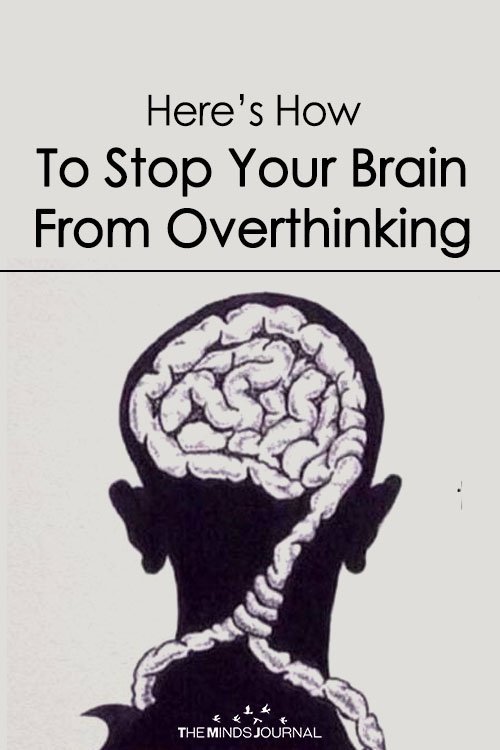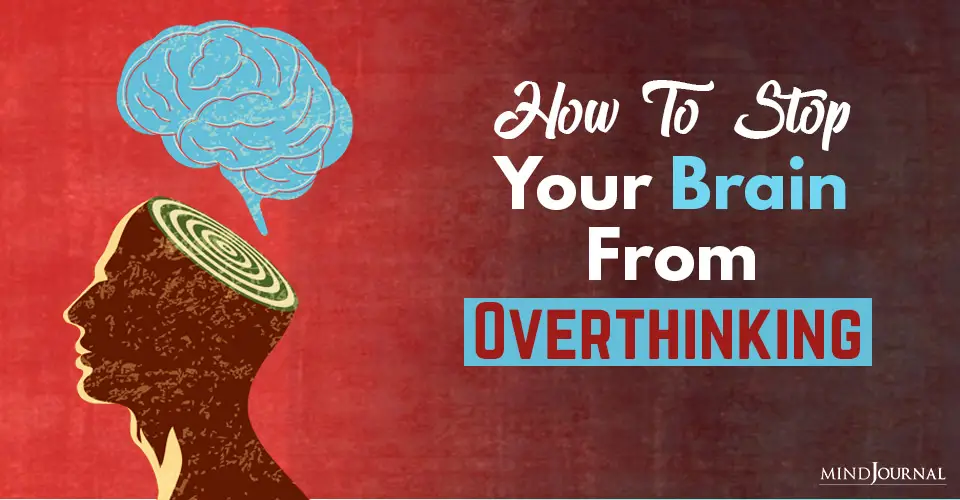You need to help your brain focus and not go overboard. For most of us, our brain goes on an overthinking mode and thus increases our levels of anxiety. It often prevents you from doing things in a smart way. Our minds often play the fool with us and making up our mind may be the single most difficult thing to do.
Does overthinking have its negative consequences for all of us who worry chronically?
In fact, experts have shown how chronic worriers focus on uncertainties and feel anxious about the future. They have no control over their lives hence.
Related: How To STOP Overthinking As A Highly Sensitive Person
Research has shown how a broader overview approach is better for the brain to recollect and remember complex brain images.
In order for your brain to process information, you need to imagine taking all of the details at once and see how each fits into a niche of its own.
Training the brain to not overthink and recall an image from a book that you have read in the last 15 minutes is a good way to start. When you try looking at an image for the past 5 minutes, you prevent your brain from forgetting and enable it to process quickly.

You should also train your brain to be comfortable with uncertainty. Over thinkers often train their brains to focus on uncertainties as they are busy trying to solve these knots.
For an overthinker, it is almost like a two-year-old that is trying to seek answers. Some of these questions can be answered but a lot of over thinkers may tend to dwell on the uncertainties rather than focusing on the solutions.
Seeking answers to questions may not be that easy. It is, therefore, necessary that you seek the answer to the question you are overthinking or just plain accept the fact that despite the question, there is no answer. You should also train your mind to think beyond the negative self-thinking and create a sense of self in your mind.
Meta thinking is all about self-thinking and what your mind thinks of you after careful self-observation. People, who indulge in negative self-thinking, often cannot express themselves emotionally or via their thoughts to others.
Related: How To Stop Overthinking
Allowing the negative thoughts to exist while rejecting them is a part of how overthinkers can curb their mind from going awry.
Researchers in the Journal of Behavior Therapy found that mindfulness-based cognitive therapy (MBCT) helped people feel more self-compassion rather than negative emotions while on an overthinking mode. This MBCT therapy enabled lower stress levels in thoughts of most others suffering from a heightened sense of anxiety.
You need to fight hard and gain control of your life. If you want to take control of a situation and stop overthinking, you need to find a concrete action that can help you get some sense of control in your life.
You need to get into a habit of noting down the things that cause the maximum worry in you. Post which, you need to stop worrying unnecessarily.











Leave a Reply
You must be logged in to post a comment.